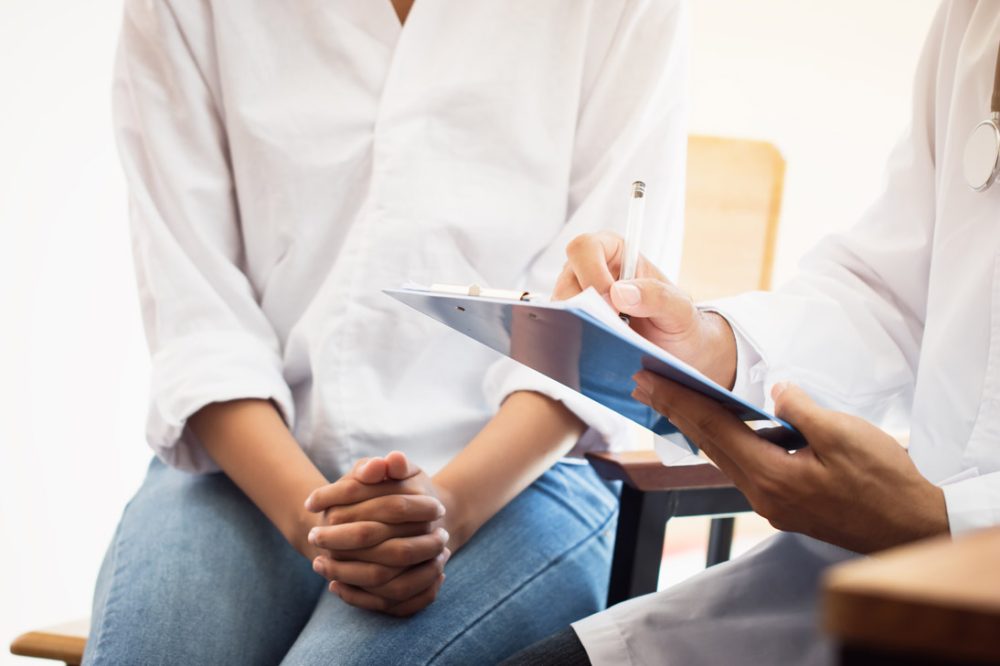Advertisment
Psychological support enhances quality of life for women with endometriosis

Severe abdominal pain, constipation and extremely painful periods: that is the reality for the around 5-10% of Danish women who suffer from endometriosis. Endometriosis is due to tissue resembling the uterine mucosa becoming lodged outside the uterus in the abdominal cavity, where it bleeds and causes a chronic inflammatory condition, and can lead to adhesions between the organs. For some women, the symptoms are so serious that they have a huge impact on their everyday lives and quality of life. A new study from Aarhus University now shows that women can benefit greatly from supplementing their medical treatment with a course of psychological therapy specifically targeted at endometriosis patients. So says the researcher behind the study, Karina Ejgaard Hansen, clinical psychologist and postdoc at the Department of Public Health:
“We can see that a ten-week course of psychological group therapy can significantly increase quality of life for these women. That means that although it is not possible to do more to relieve the pain, we can still do something to help these women and improve their quality of life.”
The study also shows that mindfulness and acceptance-based psychological intervention work just as well as non-specific psychological therapy, says Karina Ejgaard Hansen.
“It’s interesting that it is not a question of a specific method of psychological therapy, but that women find their quality of life is improved by both forms of psychological intervention. This offers more and better possibilities to help them.”
According to Karina Ejgaard Hansen, this is the first study to establish that psychological therapy makes a difference.
“The study is the first which, in a well-controlled, randomised trial, has compared three different groups in order to study the effect of psychological therapy for women with endometriosis and chronic pelvic pain. That is why it is only now that we can conclude with reasonable certainty that the effects are due to the psychological treatment, and not just because we are ‘doing something’, or that it is an effect that would have occurred over time anyway,” she explains.
Less helplessness and fewer symptoms
The women in the trial did not experience reduced pain after the psychological therapy, but they found they were able to handle it better, and other symptoms were also reduced, says Karina Ejgaard Hansen.
“The women felt less helpless and found that they had better control over the disease and their own psychological well-being. In fact, they found that symptoms such as constipation and pain during defecation were also reduced.”
The trial thus also represents a possible breakthrough in the treatment that these women can be offered in Denmark, says Karina Ejgaard Hansen.
“Today, psychological therapy or support is not part of the public sector treatment offered to women who suffer from endometriosis. However, this study shows that women with chronic pain would benefit from being provided with more interdisciplinary treatment options in future.”
The study goes digital
As part of a major EU-funded research project (EU Horizon 2020: FEMaLe – Finding Endometriosis using Machine Learning), the treatment process is currently being digitised. The aim is to reach out to women all over the country online.
The effects of the digital/online treatment programme, with a focus on quality of life, work capacity and the physical and mental health of women with endometriosis, will subsequently be examined in a more extensive study.
Digital/online psychological treatment or support is not currently part of the public sector treatment offered to women who suffer from endometriosis, either.
About endometriosis
- Endometriosis is a chronic systemic disease which affects 5-10% of Danish women of childbearing age. Endometriosis is due to tissue which resembles tissue from the mucous membrane inside the uterus becoming located outside the uterus on the organs in the abdominal cavity, where it bleeds, becomes inflamed, and forms scar tissue and adhesions between the organs.
- The disease can lead to disabling pelvic pain, infertility problems and significantly reduced quality of life and ability to work.
- The traditional treatment of painful endometriosis usually consists of a combination of surgery, in which the endometrial tissue is removed, and medical treatment designed to slow the progress of the disease and relieve the symptoms.
- In many cases, these treatments are insufficient to relieve the pain and improve the women’s quality of life, which is why many women with endometriosis find themselves isolated, trying to cope with a life with chronic illness and pain, as well as the follow-on effects.
About the study
- The study is a three-armed randomised controlled trial in which the participants were divided into three groups: 1) Mindfulness and acceptance-based psychological intervention, 2) Non-specific psychological intervention and 3) Normal medical treatment (waiting list).
- The project was carried out in a collaboration between the Department of Psychology and Behavioural Sciences, Aarhus University, the Department of Gynaecology and Obstetrics, Aarhus University Hospital, and the Danish Endometriosis Association.
- The project has received financial support from Trygfonden (IDnr. 109243) and Ladywalk.
- The study has undergone peer review and has been published in the international scientific journal Quality of Life Research. Direct link to the article: https://link.springer.com/article/10.1007/s11136-023-03346-9





